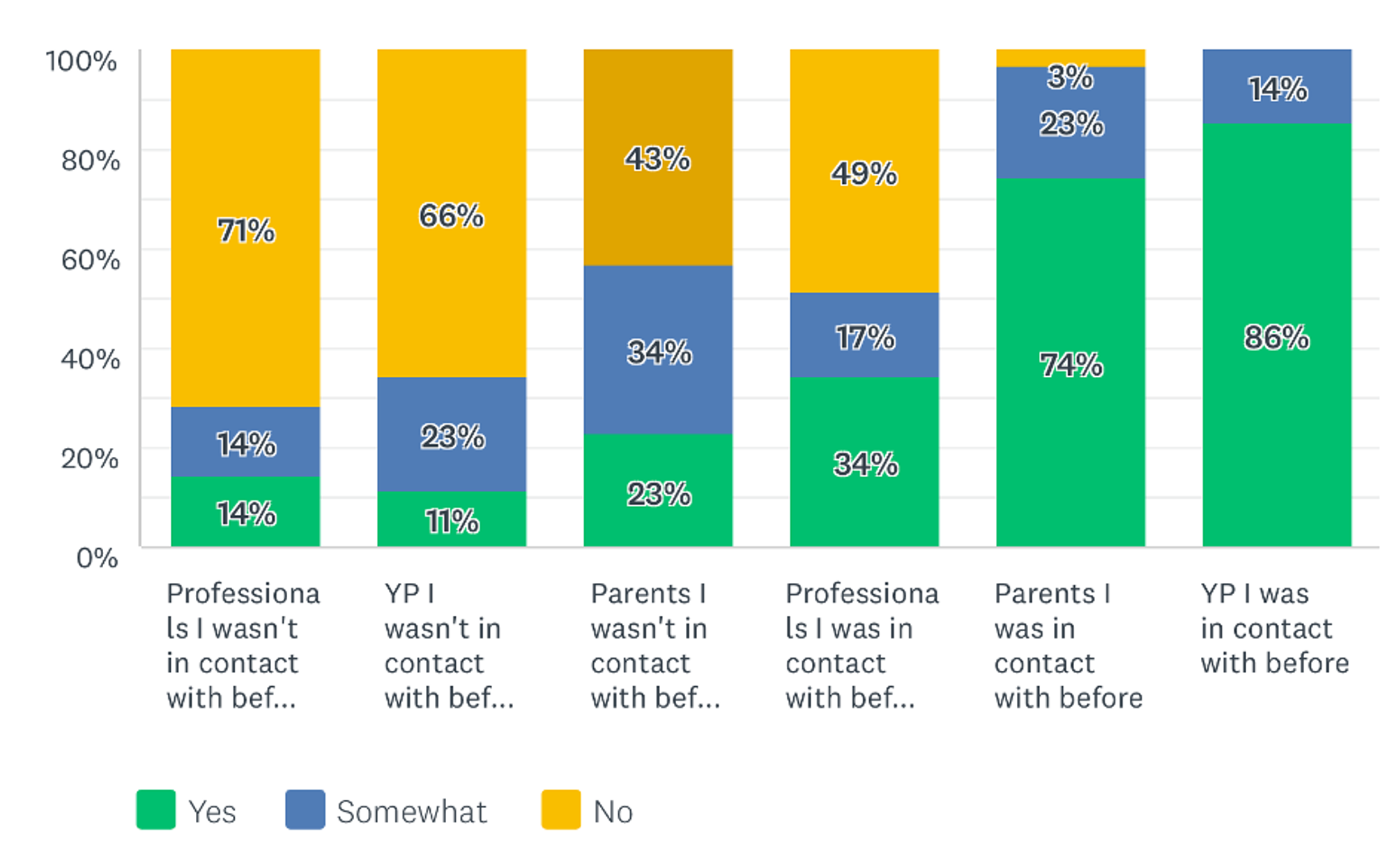Head of Research Lucie Shuker breaks down the results of our new weekly survey designed to hear how youth leaders are doing in the midst of COVID-19.
Last week we asked you some questions for the Friday 3x3 – a way to take the temperature of the youth ministry community during the Coronavirus pandemic. Every Friday at 3pm we’ll ask three questions which will take you no more than three minutes to answer.
It was quieter this week. Last week, lots of those who engaged with our survey told us they were expecting to carry on at the same pace over Easter. But we only had 35 of you glorious people respond to our Thursday survey (a day early!) so maybe we were winding down after all! So, a quick reminder, with only 35 responses this is not representative of what the wider Christian youth work tribe thinks or feels.
1. FLOUTING: ARE THEY OR AREN'T THEY?
Ministers and public health officials have been under fire for ‘flouting’ (great word) government guidelines, and to some extent so have teenagers. An article reported that government polling showed teenagers to be a "problem" group when it comes to compliance. The polling wasn’t made public but apparently shows that teenagers are among those who leave their homes the most.[1] A poll by YouGov and Kings College London showed that younger people are most likely to find lockdown difficult compared to other age groups, with 42% of 16-24s already finding it extremely difficult, or expecting to in the next four weeks. In a recent Youthscape podcast Dr Kate Middleton discussed some of the reasons young people are likely to find it harder than others (neurological and social reasons among others), so we asked ‘As far as you're aware, are young people you know respecting social distancing guidelines?’
Obviously youth workers won’t really know what young people are doing 24-7, but 28 (80%) said yes, young people were, with six people saying ‘Mostly’ and one saying ‘Somewhat’. We don’t have access to government polling but given the small size of our sample, we might have to defer to their findings on this one. If that’s right and teenagers are more likely to gather socially – what is the responsibility of youth workers? On the one hand, we need to promote compliance and help young people #stayathome but we may also need to advocate for them, especially where they may lack safe spaces. Here is a great blog post on that topic.
[1] ‘Parents of teenagers who flout coronavirus lockdown rules should be fined, police told.'

2. FURLOUGH: VOLUNTEERS MAY HELP SUSTAIN YOUTH MINISTRY
Recent government policy has made it possible for organisations in financial difficulty to ‘furlough’ staff. If you are furloughed you may receive up to 80% of, or your full, salary but can’t do any work – though you can volunteer for other organisations. If paid youth workers are furloughed, this will obviously have a direct impact on available youth provision as well as affecting people themselves and colleagues who continue to work. We asked ‘Has youthwork in your context been affected by staff being furloughed? Please tell us about any impact on you, your team, your provision/ministry or on young people’.
26/34 said ‘No’. Five of these added that this was because their youth work team is all volunteers. One person reflected that their volunteers have more time because they been furloughed from their paid work, while another explained that their volunteers are teachers and NHS workers so are still working and volunteering! A few people said ‘Not yet’ in anticipation of this coming down the line.
Eight people said they or their context had been affected by furlough. In one context the community/schools work team had been furloughed, while church youth work had moved online and been relatively unaffected. Some people told us they had lost between 1/3 to 1/2 of their team with the result that some key relationships were disrupted, and young people either couldn’t see a youth worker or had to meet someone new. In a church context, one person told us that youth and children’s work had merged in response to staff furloughing, while two described blurred boundaries around ‘volunteering’.
“I haven't been furloughed, but others on my staff team have (they were helping me run youth online), so now I have a lot more on my plate. It's so hard in the church - vague boundaries on work/volunteering - the staff have been asked to volunteer for different things, but I think that's unethical and makes the atmosphere - which is already stilted over zoom - more tense!”
3. A MINORITY CONNECTING WITH NEW YOUNG PEOPLE, PARENTS AND PROFESSIONALS
We asked who you had been engaging with since the lockdown, to get a sense of how many of us have experienced our networks expanding or new opportunities for connection presenting themselves. It’s reassuring to find that all respondents told us they are in contact with young people they were already in contact with before and 97% are in contact with parents they were engaged with before. What is more interesting is that these youth workers report being more likely to engage with new parents (57% said ‘yes’ or ‘somewhat’) than new young people (34% said ‘yes or ‘somewhat’). Why is that?
'Since lockdown I have been engaging with…'

4. AND FINALLY...
We took the opportunity to invite any reflections on what it’s been like to be a youth worker in the last week. Some of the 19 people who wrote answers sounded energised by the new opportunities and life they were witnessing (“It's a new adventure!”) and were beginning to feel like they knew what they were doing in the ‘new norm’. For some, moving online had facilitated new depth.
“Connecting digitally means I have daily contact with some of the young people (over 13s) through our Snapchat group. So I feel more in touch than usual. Also feel that actually the depth of contact is in many ways deeper. The young people themselves have somehow let me come closer. It is a great opportunity to be more open about faith questions including doubts and fears.”
For most though, there were highs and lows. It was a struggle to get to terms with new tech – especially for those who hadn’t used it before. Social media burnout was affecting a few people, and some were conscious of young people who they struggled to engage with: older girls who were feeling isolated and those who’d left the youth group but still needed support. Two people highlighted the importance of offline connection through hand-written Easter cards (one person wrote 107… 107!!!!) or care packages and food parcels.
I’ll leave you with two reflections. Whether you are riding a wave of optimism or feel smothered by the duvet of despair, may these be true for you.
“It’s still a great job”
“I think it’s glorious for our young people to see that the church is pursuing them, I hope this will impact them in years to come. Sure, connection is hard but I think they’ll see we are fighting for them.”







